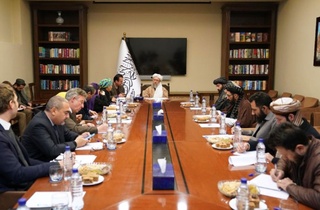The head of the United Nations Secretary-General, Roza Otunbayeva, in Afghanistan, attended the meeting, which was held on Wednesday.
The Deputy Secretary General of the United Nations, Amina Mohammed, shared her concern about the recent decrees banning women’s work and education and asked for a review of this concern.
The Afghan women living abroad told her that if they are provided with work and activities in Afghanistan, then they will return to the country, she added.
Amina Mohammed said that there is a need for women’s work and activity in many sectors, so the problems caused should be addressed through dialogue.
“We want to increase aid to Afghanistan and make this country an active member of the international community,” she added.
Meanwhile, the Executive Director of the United Nations Women’s Division, Sima Bahous, said that aid to Afghanistan is related to the activities and work opportunities of Afghan women.
They have to find ways to work in light of Afghan values and culture.
She added that “11.6 million Afghans are in dire need of humanitarian assistance at the moment.”
For his part, Hanafi, welcoming the UN delegation, thanked the international aid in the sectors of health, education, and agriculture, and said that the United Nations has taken steps to remove the blacklist, and recognize the Islamic Emirate.
Hanafi said that the UN did not pay the necessary attention and cooperation in handing over the permanent representation of Afghanistan to the United Nations.
Hanafi said that due to the long war in Afghanistan, millions of Afghans migrated, and five million became addicted to drugs, where one million of them are women and children.
Many Afghans need international aid due to long wars, poverty, and droughts in the country, Hanafi added.
Citing the general amnesty by the Islamic Emirate, Hanafi said that security has been ensured, corruption eradicated, drug cultivation and smuggling have been prevented, and Daesh suppressed, Hanafi added.
Hanafi said that the Islamic Emirate has done positive works in health, education, security, women’s rights, and other different sectors and is still striving to provide good services and facilities to the citizens.
Hanafi stressed that humanitarian aid is should not be linked to political issues, adding women will still be affected, he said that the problems should be resolved through dialogue. (ILKHA)



 Spor
Spor
 Dünya
Dünya
 Güncel
Güncel
 Güncel
Güncel
 Dünya
Dünya
 Dünya
Dünya
 Dünya
Dünya
 Dünya
Dünya
 Spor
Spor
 Dünya
Dünya





